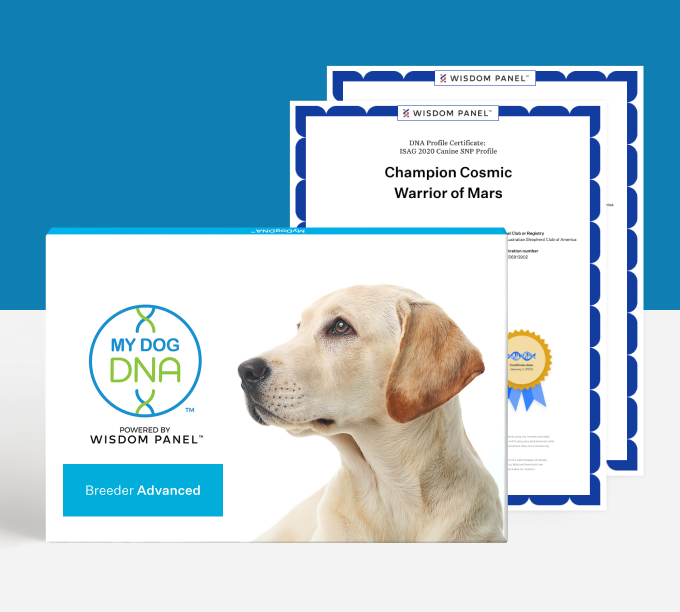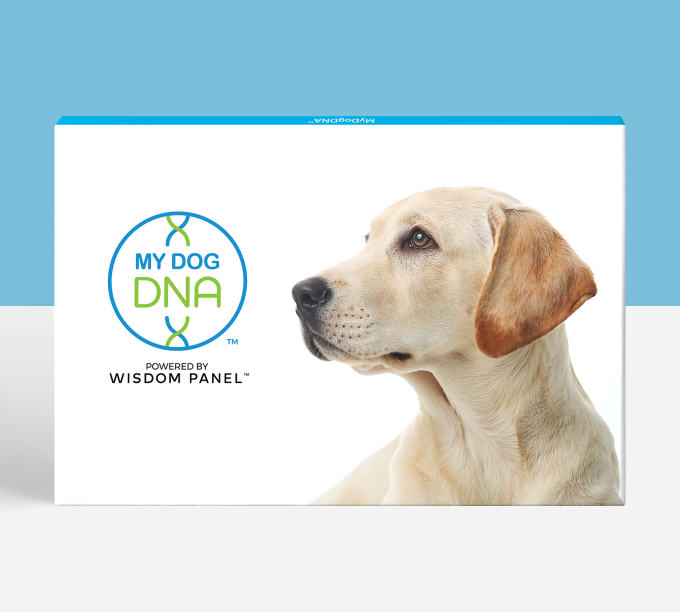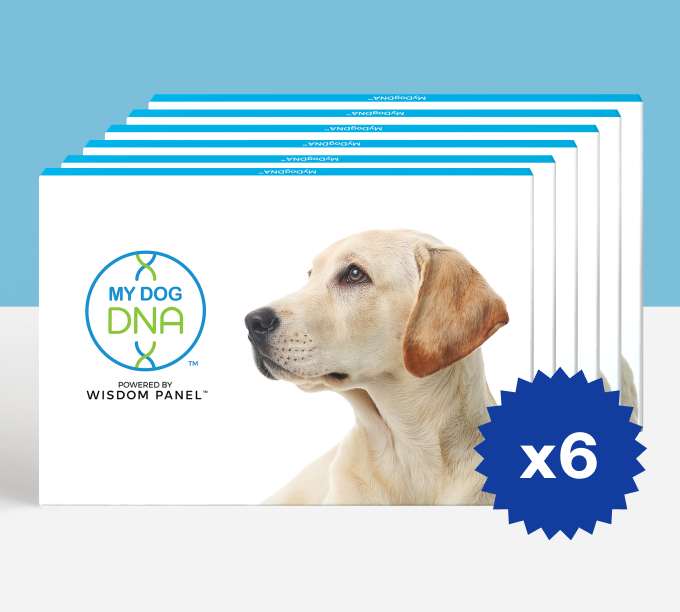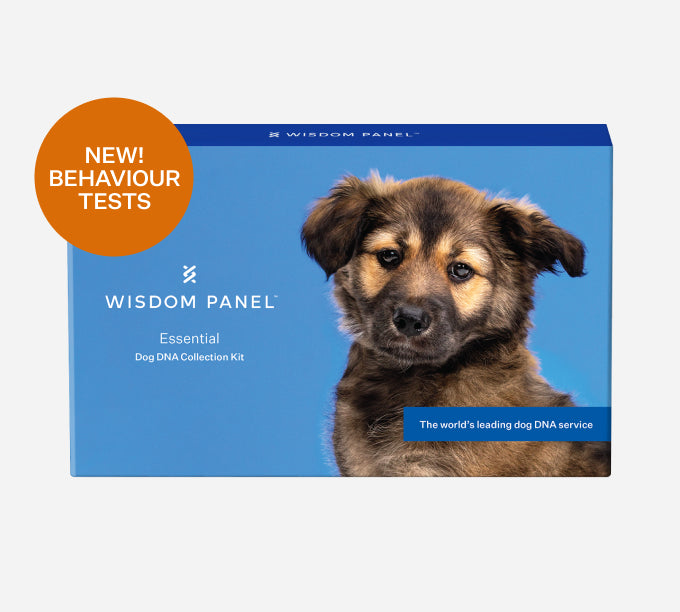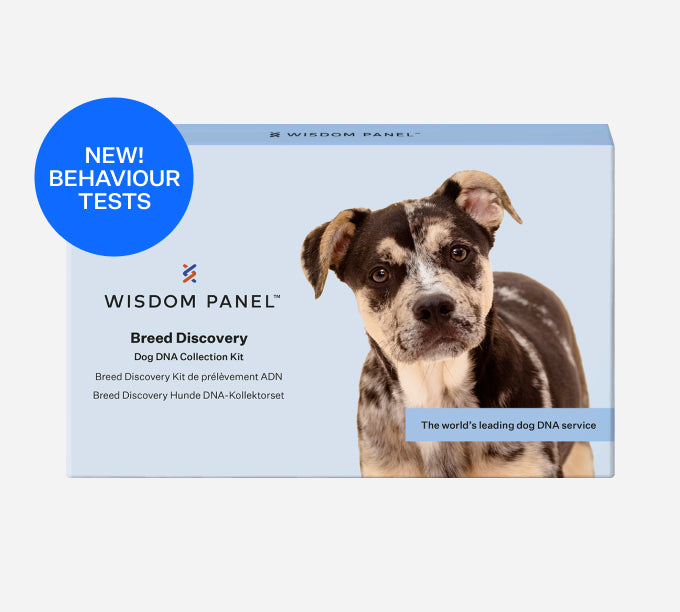A partnership between Wisdom Panel and the Canine Genetics Centre, Cambridge investigating the genetics of disc calcification in Dachshunds
Update: As of December 2025, the exploration phase of the study is underway, with Dachshunds from the Royal Kennel Club (UK) and Dansk Kennel Klub (Denmark) participating. A secondary validation phase is planned with Dachshunds from additional geographies.
Background (from CGC):
In 2017, researchers identified a genetic risk factor for intervertebral disc disease (IVDD) in dogs that is found in over 90 short-legged breeds, including the Dachshund. This risk factor is known as the CDDY mutation, and dogs that carry this genetic variant are known to be at increased risk of IVDD and intervertebral disc herniation compared to dogs that don’t carry it. However, despite this shared genetic risk factor, individual dogs and breeds vary significantly with respect to their age and clinical presentation of IVDD, which suggests that additional genetic risk factors are involved beyond CDDY, and it is not a simple, single-gene disorder. To learn more about CDDY and its relationship to IVDD, please see our blog post, here.
As part of an exciting collaboration between the University of Cambridge Veterinary School and Wisdom Panel, the principal investigator, Dr. Bruno Lopes VetMed, ECVN, practicing UK veterinary neurologist, and PhD student at the Canine Genetics Centre will be investigating the underlying genetics of disc calcification in Dachshunds as part of his PhD. Read on to learn about some of the existing programs, and, if you are a Dachshund breeder, how you can be a part of this important research and even receive complimentary MyDogDNA™ testing.

Existing IVDD Screening Programs
There is a known relationship between risk of disc herniation and the presence and number of calcified intervertebral discs. It is also known that disc calcification is heritable, which has led to the development of club- or registry-based breeding recommendations or requirements to include radiographic (“X-ray”) screening for breeding dogs.
Although the degree of heritability of disc calcifications has been reported anywhere from low (0.15-0.20, Norway) to high (0.60–0.87, Denmark), disc calcification is clearly heritable and can be selected against. Spinal radiographic screening for Dachshunds has been around since at least the early 2000’s in the Nordics and is expanding to other countries. Some example programmes and their degree of required participation include:
-
The Royal Kennel Club IVDD Scheme for Dachshunds —strongly recommended
-
The Dansk Kennel Klub (Danish Kennel Club) Dachshund IVDD disorder protocol—required
-
The Suomen Kennelliito (Finnish Kennel Club) Dachshund IVDD screening program —strongly recommended
-
The Norwegian Federation of Dachshund Clubs IVDD screening program—recommended
-
The Svenska Kennelklubben (Swedish Kennel Club) Dachshund IVDD screening program—recommended
-
The Deutschen Teckelklub (DTK) breeding approval requirements - required
-
The Dachshund Club of NSW Inc (Australian state club) screening program—recommended
These programs are largely harmonised and typically require radiographs under anesthesia or sedation at 2-4 years of age to control for age-related changes. The number of views, however, may vary by country, program, or Dachshund variety.
How you can help
Wisdom Panel and the Canine Genetics Centre need Dachshunds that have had spinal radiographic examination to submit DNA samples for our study. All varieties of Dachshund are eligible and welcome to participate and are eligible to receive complimentary MyDogDNA™ testing as part of the study.
Eligibility Requirements
-
Pedigree: Participating dogs must be an FCI, RKC (UK) or AKC (US) pedigreed Dachshund/Teckel with registration number and pedigree available on request.
-
Radiographs: Participating dogs must have radiographs (X-rays) taken between 2 and 4 yrs of age (24 - 48 months), and breeders must be able to provide the official review certificate or scoring for the screening. Images themselves are not required.
-
Relatives: It is preferred that breeders avoid submission of close relatives (siblings and parents)
-
Not required:
-
Participating dogs do not need to be intact or currently breeding to participate.
-
Dogs of all grades (0-3) are welcome; a variety of disc calcification scores are needed for this study.
-
Dogs that have previously herniated discs are also eligible to participate.
-
Spinal radiographic screening (X-rays):
Participating dogs must have received screening at the prescribed time of 24-48 months of age, but do not need to have been recently screened (they may be older). The Nordic protocols, as well as the UK scheme require a minimum of 5 spinal views/images for Standard varieties, and a minimum of 4 views/images for Miniature and “Rabbit” (Kaninchen) varieties. The German procotol utilises 3 views. Images must be performed under sedation or anesthesia.
Genetic Testing
All eligible participating dogs will receive complimentary MyDogDNA™ testing results (a €110,99 value) if desired, delivered as a web-based report. These results include 270+ disorders, including CDDY and CDPA results, and will be delivered within 3 weeks of receipt at the Wisdom Panel laboratory. Sample data will then be analysed by Dr. Lopes and other researchers for additional risk factors. If the study is successful in identifying additional genetic risk factors, these will not appear in the delivered MyDogDNA™ report but will be delivered by the Canine Genetics Centre at a future date not yet determined, at the conclusion of the study.

Interested? Apply here:
The study admission will close after 300 samples are received, on a first-come, first-served basis. The Canine Genetics Centre has an application for the study that can be found on their website, here:
https://www.canine-genetics.org.uk/research/sample-request-form/
Upon acceptance of the form, the CGC will post 4 swabs to the breeder address provided. Breeders are expected to return the swabs and the forms to the CGC, postage payable by the breeder.
What to expect after the study concludes
If the study is successful in identifying additional genetic risk factors, the findings will be published in a peer-reviewed journal. The CGC would notify owners of their dogs’ tested genotype and associated risk, and Wisdom Panel may choose to include these risk factors in future testing if the association with disease risk is adequate. The CGC and Wisdom Panel will do our best to notify all participating clubs of the publication for their reference and benefit. If additional genetic risk factors are not found, a publication is unlikely. As this is research, findings may take months or years to finalise depending on the participant return rate and difficulty in analysis of the findings, so patience is appreciated.
FAQs:
-
Do you accept “rabbit” or “kaninchen” varieties of Dachshund? Yes
-
Must my Dachshund be under a certain age to participate? No, as long as he/she meets the criteria for radiographs at 2-4 years of age, they are eligible.
-
My dog has already had MyDogDNA testing, do I need to resubmit? Yes, as we will need additional DNA for the analysis.
-
Are the results confidential? Identifying information about the owner and dog are only shared with Wisdom Panel and CGC researchers, and only anonymised aggregate or group data would be included in any publication. Results are not reported to any registry, although the breeders themselves are welcome to do so.
-
I am not located in the UK, can I still participate? Yes, we have opened the study to dogs from most countries, provided they have had the required spinal radiographic screening and can supply a scoring certificate.
-
My dog has herniated a disc before. Are they eligible? Yes, we would love to test them.
-
My dog has a grade III score, do you want to test them? Yes, any grade from 0-3 are welcome to apply.
-
I have a pet Dachshund, but they are pedigreed. Are they eligible? Although this study is aimed at Dachshund breeders, owners can also participate provided they meet the other eligibility criteria.
-
I would like my club to participate, who can I talk to about this? Please contact breeder@wisdompanel.com or the CGC to discuss.
References:
-
Batcher K et al. Phenotypic Effects of FGF4 Retrogenes on Intervertebral Disc Disease in Dogs. Genes (Basel), 2019. 10(6).
-
Brown EA et al. FGF4 retrogene on CFA12 is responsible for chondrodystrophy and intervertebral disc disease in dogs. Proc Natl Acad Sci U S A, 2017. 114(43): p. 11476-11481.
-
Bannasch D et al. The Effects of FGF4 Retrogenes on Canine Morphology. Genes (Basel), 2022. 13(2).
-
Knox CA. CDDY and Intervertebral Disc Disease in Dogs. MyDogDNA Blog. July 14, 2025. Accessed November 3, 2025. https://mydogdna.com/blogs/news/cddy-and-intervertebral-disc-disease-in-dogs
-
Lappalainen AK et al. Intervertebral disc disease in Dachshunds radiographically screened for intervertebral disc calcifications. Acta Vet Scand (2014) 56:89
-
Lappaleipen et al. Estimate of heritability and genetic trend of intervertebral disc calcification in Dachshunds in Finland. Acta Vet Scand (2015) 57:78
-
Lappalainen AK. Mäyräkoirahalvaus ja selkänikamien välilevyjen kalkkeutuminen ((Dachshund paralysis and calcification of the spinal discs). Suomen Kennelliitto. Accessed November 3, 2025. https://www.kennelliitto.fi/mayrakoirahalvaus-ja-selkanikamien-valilevyjen-kalkkeutuminen

